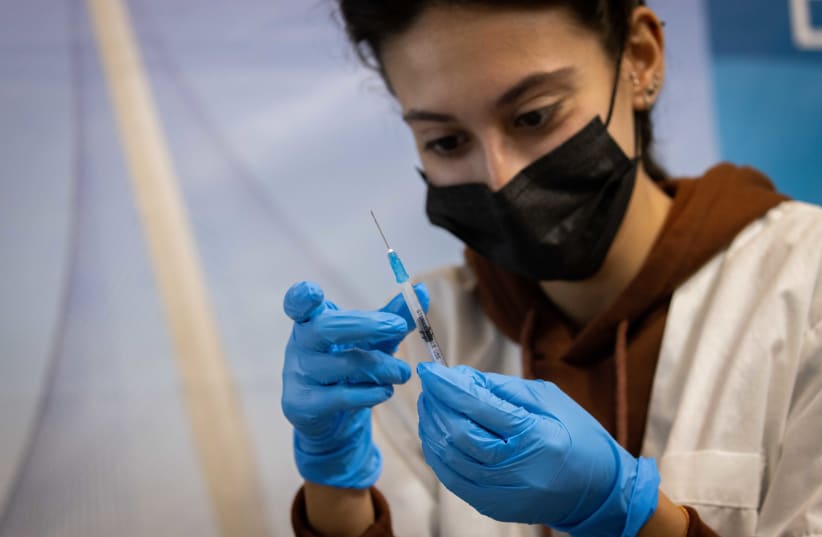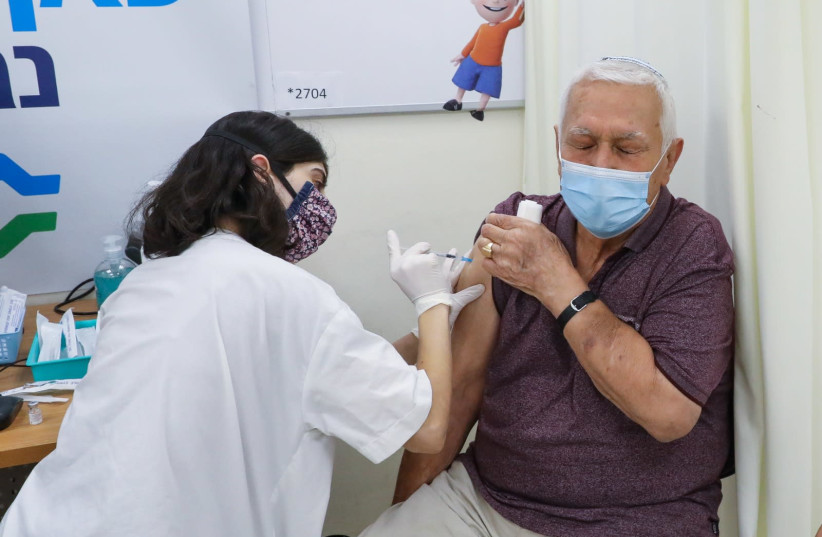The measles vaccine lasts forever. The chickenpox vaccine is good for as long as 20 years. The DTaP (diphtheria, tetanus and pertussis) requires five doses before the age of seven, but then it offers protection for at least 10 years.
So why do we assume that we will have to get a shot of the coronavirus vaccine every six months or year?
There are reasons why individuals might need a COVID booster at least every year, but also some reasons why the third shot may, in fact, be our last.
The first reason we might need a fourth (or fifth or sixth) shot is because of the decay of our own antibodies and immune response, explained Dr. Oren Kobiler of Tel Aviv University’s Sackler Faculty of Medicine.
Recent studies have shown that the Pfizer coronavirus vaccine wanes after four to six months, making individuals more prone to infection. A booster dose does exactly what its name implies: It boosts our antibodies, offering greater protection against the virus.
Another reason we might need repeated shots is due to variants, or what is known in scientific terms as “antigenic drift.” If the virus is always changing, then our vaccines will need to be updated to protect against the latest threat.
Some viruses, such as polio, measles and mumps, do not change a lot, hence the vaccines continue to be effective. In contrast, influenza changes every year, so people receive a new flu vaccine to protect against it.
“The vaccine is the protection,” said Prof. Meital Gal Tanamy, head of the Molecular Virology Lab at Bar-Ilan University’s Faculty of Medicine. “The period of protection is dependent on the vaccine and the virus.”
“A variant is a virus that contains mutations, and if it has evolutionary advantages, it can take over in the population,” she said, adding that this is what happened with the Delta variant. “The other question is how effective against these variants the vaccines we have will be.”
Coronavirus is an RNA virus, which means it changes. However, its mutation rate is three to four times less compared with the influenza virus, which is good news for vaccine makers, Gal Tanamy said.
Another thing to consider is how good the immune response really is that is induced by the vaccine.
“If the purpose of a vaccine is to prevent infection, then it needs to lead to the creation of a good memory cell response – B cells and T cells that are cells induced by the vaccine but that stay in our body,” Gal Tanamy said. “If a person becomes infected, these cells are activated and can create a fast and good response against the pathogen, which is why we do not get sick if we are vaccinated.”
The question then is whether or not we get a good memory response with the vaccines that we have.
Recent papers have shown that even as neutralizing antibodies wane, the vaccine still has a good memory response.
So, why take the booster then?
Because, Kobiler said, the booster is not only stopping serious disease, it is also aimed at halting infection – a high bar for a vaccine.
“Most vaccines are used to prevent serious infection and not any infection,” he said. “Here we are asking the vaccine to prevent any and all disease, to prevent the infection from spreading.
“Most people in the world don’t need the booster shot to prevent them from getting serious disease, but they do need it to prevent them from getting corona and spreading it to other people.”
Gal Tanamy stressed that even people with two shots are “still very much protected from severe disease” because of their memory cells.
But there are also reasons to believe that this third shot could be the last.
Many childhood vaccines are taken three times and no more, such as the polio vaccine and the HPV vaccine against the papilloma virus. The latter, for example, if taken after the age of 15, needs three doses, one month and six months after the first dose, and then it lasts a lifetime, as far as scientists currently know.
Another idea is that the administration regime could be altered to make the vaccines more effective.
Several recent papers suggest, for example, that the Pfizer vaccine creates a more robust immunity if the first and second shots are given eight or even 12 weeks apart instead of three, Kobiler said.
“Now, with the third dose being given at six months [after the second dose], I am not sure we will ever need another booster,” he said.
There are also scientists who believe that like previous coronaviruses, the pandemic will eventually become endemic and less severe, and the need to vaccinate will soon become unnecessary, Kobiler added.
“I am more inclined to that point of view because of what we know of other coronaviruses,” he said. “Usually, they are caught at a young age and cause very mild disease. And those that are exposed to them at a young age tend not to suffer from severe disease when they are older.”
Finally, each booster sparks a better immune response, both in terms of quantity and quality of antibodies than the one before, Gal Tanamy said. The immune response becomes “more specific” and the antibodies “more efficient,” she said.
So, will we or won’t we need to vaccinate against COVID for life?
“Only time will tell,” Kobiler said.

